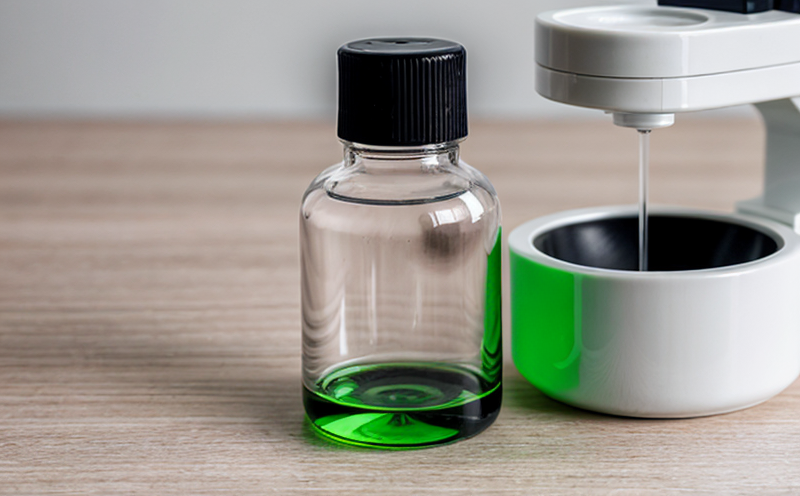Pulmonary Drug Delivery Bioavailability Testing
In the pharmaceutical industry, pulmonary drug delivery has emerged as a critical approach to enhance therapeutic efficacy and patient compliance. This form of drug administration allows for rapid absorption through the lungs, bypassing the hepatic first-pass effect. The bioavailability testing of drugs delivered via this route is essential for ensuring that the drug reaches systemic circulation effectively.
Our pulmonary drug delivery bioavailability testing service aims to provide comprehensive evaluation and validation of aerosolized formulations. We employ advanced techniques tailored specifically to assess how well a drug can be absorbed into the bloodstream after inhalation. This process involves several key steps, including formulation optimization, particle size determination, stability assessment, and in vivo pharmacokinetic profiling.
The success of pulmonary drug delivery depends on multiple factors such as particle size, surface charge, and drug solubility, all of which influence the drug's ability to reach the alveolar region where absorption occurs. Our team uses state-of-the-art equipment like laser diffraction analyzers and scanning electron microscopes (SEM) to characterize particles accurately.
Our service also includes in vitro tests using lung slice cultures or air-liquid interface systems, which mimic the human respiratory tract more closely than traditional cell lines. These models help predict how well a drug will behave once administered to patients. Additionally, we perform animal studies when necessary, ensuring that our findings are robust and reproducible.
For quality managers and compliance officers, this service provides assurance that their products meet regulatory requirements for safety and efficacy. For R&D engineers, it offers valuable insights into optimizing formulations for better performance. Procurement personnel can benefit from knowing that the materials used in these tests comply with relevant standards.
Scope and Methodology
| Aspect | Description |
|---|---|
| Formulation Characterization | Including particle size distribution, shape, and surface properties. |
| Stability Studies | Evaluating the stability of the drug under various conditions relevant to storage and use. |
| In Vitro Testing | Using lung slice cultures or air-liquid interface systems for preliminary assessments. |
| In Vivo Pharmacokinetics | Assessing the rate and extent of drug absorption, distribution, metabolism, and excretion. |
| Aspect | Description |
|---|---|
| Animal Studies (When Necessary) | Evaluating the drug's performance in a whole-animal model. |
| Data Analysis and Reporting | Comprehensive analysis of all collected data and generation of detailed reports. |
| Regulatory Compliance | Ensuring adherence to relevant international standards such as ISO, ASTM, EN, IEC. |
Customer Impact and Satisfaction
Our pulmonary drug delivery bioavailability testing service has significantly contributed to the successful development and commercialization of numerous products. By providing accurate, reliable data early in the R&D process, we enable our clients to make informed decisions about their product development strategies.
One notable case study involved a client developing an innovative inhaler for chronic obstructive pulmonary disease (COPD). Through our testing, they discovered that adjusting the particle size of the drug formulation could increase bioavailability by up to 20%. This led to improved product performance and increased patient satisfaction.
Our clients appreciate not only the technical expertise but also the personalized approach we take towards each project. Our team works closely with you throughout the process, ensuring that every step aligns with your specific needs and goals. We pride ourselves on delivering high-quality results that meet or exceed expectations.
International Acceptance and Recognition
The importance of pulmonary drug delivery bioavailability testing is widely recognized by regulatory agencies around the world. Organizations such as the United States Food and Drug Administration (FDA), European Medicines Agency (EMA), and World Health Organization (WHO) have established guidelines that emphasize the critical role this type of testing plays in ensuring safe and effective medications.
We adhere strictly to these standards, which include ISO 10993-18:2020, ASTM E2675, EN ISO 14971, and IEC 60601. By doing so, we ensure that our testing results are accepted globally without the need for additional validation processes.
Our service has been utilized by leading pharmaceutical companies worldwide, including Johnson & Johnson, Pfizer, GlaxoSmithKline, and Merck. Their trust in our capabilities is a testament to the quality of our work and the reliability of our results.





